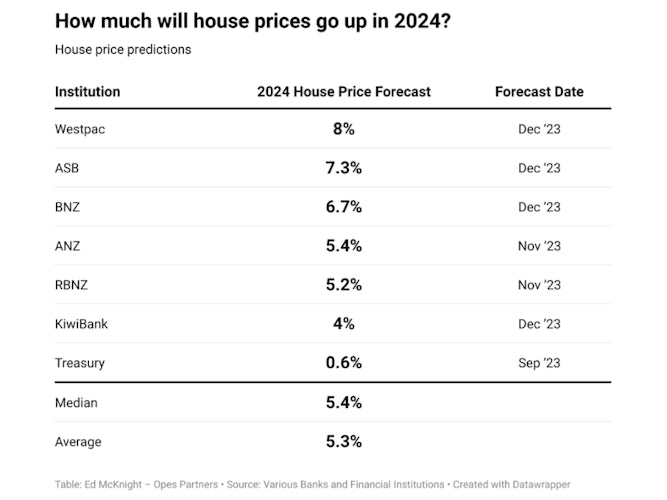Breaking down the numbers in 2023, looking forward to 2024, and the Govt.'s policies and their effects.
Too long; didn't read? Here's this week's TLDRs...
2023 – a year in review
Read the article
The stats from Core Logic
Read the article
An interesting read written by Kiwibank’s chief economist Jarrod Kerr this week: the talking-points of the state of the Kiwi housing market.
Read the article
How house prices have changed, here and abroad.
Read the article
Subdued uptick in the market through November
Read the article
An investor’s analysis of regional house price movement - Ed McKnight
Read the article
How will the new govt. tackle the housing supply issue?
Read the article
TA: A look forward to 2024
Read the article
OCR rates cuts should dominate next year
Read the article
DTIs still a possibility
Read the article
NZ’s new tax reforms are undoing the mistakes of the past
Read the article
Development group fined $133,000
Read the article
Landlord to pay $4,000 for emotional damages to ‘boarder type’ tenant.
Read the article
Aus to 3x fees on foreign purchasers
Read the article



